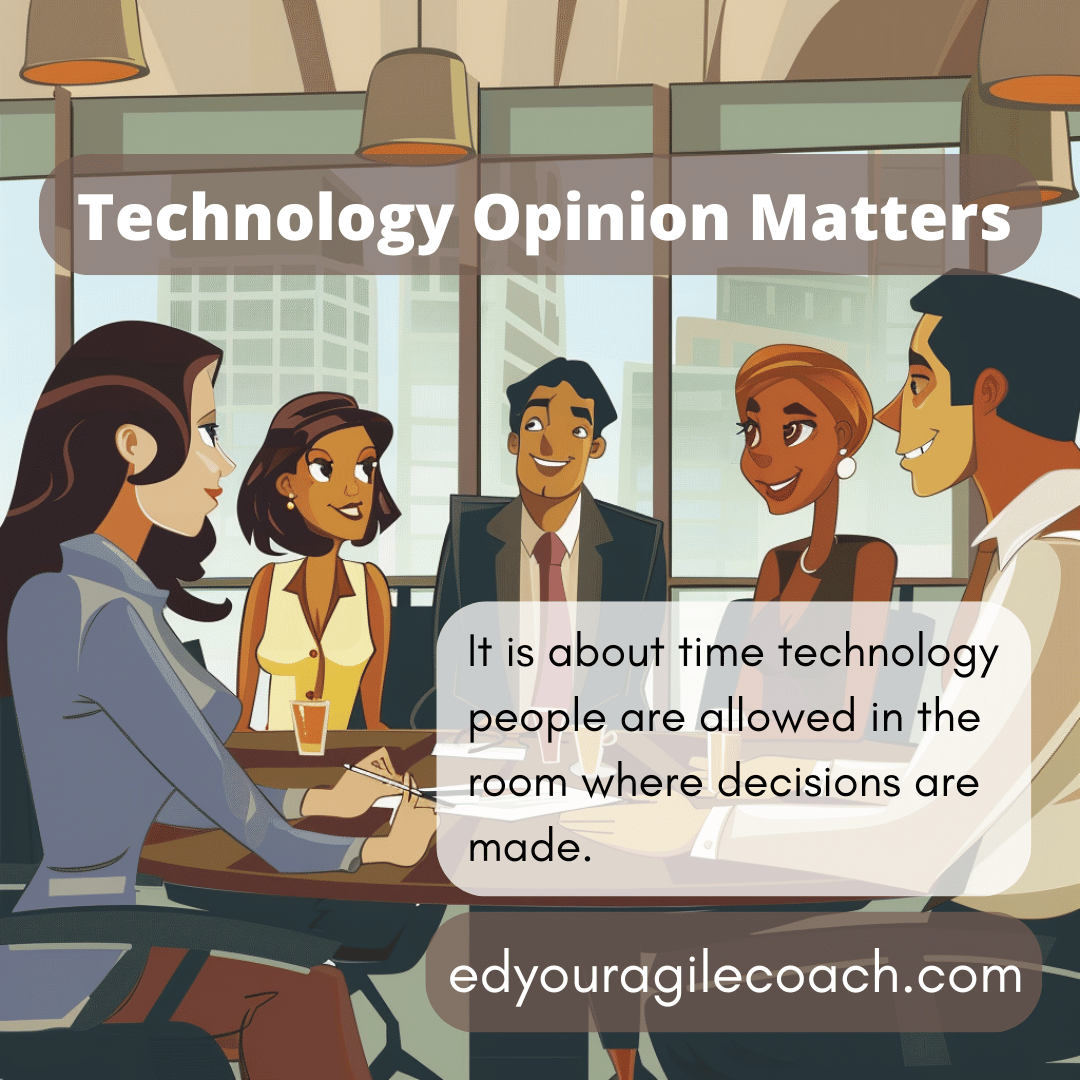Thanks for asking about our technology opinions.

From time to time, you see something in the business press that is as apparent as the wetness of water but feels revelatory to business leaders. Today, I stumbled across one of these articles. The Software Development Times has shared the latest study of software engineers and business leaders, which said that people see technologists as increasingly crucial to the business. Why did it take so long for us to get to this point? Software, technology, and, increasingly, artificial intelligence are eating the world, and it is about time business leaders treat the people who make it a reality like more than expenses are to be mitigated.
I become a technology professional during the waning days of the first dot-com bubble. It was a magical time filled with possibilities and unrealistic expectations. America Online and Netscape were internet darlings, proving that anyone could become a billionaire if they knew how to write code and sell things over the growing World Wide Web. The reality was different—plenty of people working impossible hours to create the beginning of the internet revolution. Motivated by greed, venture capitalists and technology people were looking to become the next big thing. Today, they are forgotten relics. Yahoo is a shell of its former self. The Globe social network is not even a footnote compared to the story of MySpace. Finally, Pets.com should become a cautionary tale for any MBA student in America. Jeff Bezos paid attention and made sure Amazon did not repeat those mistakes.
The gallery of dot-com failures has one common characteristic. The balance of power in each organization was off-kilter and eventually tore the business apart. The Globe and MySpace floundered because they could not compete technologically with upstarts like Facebook and Tumbler. Financial executives took control of Yahoo, prioritizing short-term stock price gains over long-term business strategy. It ultimately led to Yahoo's downfall, as its unusual stock structure incentivized decisions that eroded its core value. Finally, Pets.com mastered E-commerce and marketing but did not understand logistics and basic business operations.
The companies that did survive this time were a balance of operations, marketing, finance, and technology. It also helped that some of them created limited monopolies like Microsoft on the desktop and Google in search.
Despite this reality, business people often look down on their software people, calling them propeller heads, geeks, or worse. I have experienced this for most of my career. Frequently, leaders instructed me to follow orders and "dummy-up" and code. The irony is that you cannot be a dummy and be a coder. The creative pursuits of building software prevent that from happening. With the advent of artificial intelligence technology, business leaders are beginning to realize that if they are going to navigate this new business world, they must rely on the advice and judgment of technology people.
In a prior blog, I mentioned that less than five one-hundredths of a percent of the global population understand how to write software and maintain computer networks. The labor pool for artificial intelligence is even smaller. Business leaders have no choice but to trust technology professionals to help them navigate this strange landscape. If not, they risk getting left behind.
Behind the glowing headlines is the reality that artificial intelligence is expensive. It consumes billions of dollars, gigawatts of energy, and countless hours of labor, and it depends on skilled people attempting to train those systems ethically. The big players have the economies of scale to get bigger, and everyone risks falling behind. It looks mystical to people who do not understand what is happening behind the scenes.
I welcome the news that software engineers play a more prominent role in business. It's nice to have a seat at the decision-making table finally. Let's leverage this opportunity to champion ethical and societal good while wielding our newfound influence. Something suitable for business might be wrong for humanity, and people must speak up when that happens, like when we corrected the hole in the ozone or reduced acid rain.
I agree with former President Obama that artificial intelligence might be as transformative as electrification to the world economy. Still, if those benefits apply only to a small minority, they are wasted. Businesses can be more nimble, people more creative, and we can find solutions to complex problems. To do that, everyone must come together and learn how to apply this technology fairly and ethically.
I appreciate the opportunity to discuss my views on technology. What took you so long?
Until next time.




Comments ()